Geisel School of Medicine Student Arvind Suresh Receives Prestigious Public Health Service Award
This article was written by Susan Green and originally published in the Geisel School of Medicine News on May 27, 2021. The PHC appreciates the opportunity to share this news about Arvind Suresh, who was a key architect of our Fall 2020 Community Flu Vaccine Clinics. The original posting can be found here. — Alice Ely
Given annually to medical students in recognition of their commitment to addressing public health issues in their community, the competitive U.S. Public Health Service Excellence in Public Health Award rewards visionary medical students who are advancing initiatives to improve public health. This is the seventh year in a row a Geisel student has received this award.
Second-year medical student Arvind Suresh ’23 has been recognized for his leadership in organizing and managing student-run mobile community influenza vaccination clinics—marshalling fellow medical student volunteers who contributed more than 600 hours of service in administering influenza vaccines throughout the New Hampshire and Vermont Upper Valley region last Fall. And for his commitment to addressing food insecurity in rural Vermont communities.
Leading the Geisel Vaccinator Corps
Citing Suresh’s work, Commander Andrew Geller, MD, co-chair of the U.S. Public Health Service Excellence in Public Health Awards Program, wrote it is a “testament to the education provided by the Geisel School of Medicine at Dartmouth and to the high caliber of your students. We hope that this will encourage your faculty and students to continue their strong work in public health.”
Partnering with the Upper Valley Public Health Council and Dartmouth-Hitchcock, Suresh, along with Isabelle Tersio ’23, Sean Halloran ’23, and Sean Liu ’23, led a team of Geisel student vaccinators in bringing vaccines to rural locations where community members would otherwise need to travel farther distances to access medical care.
“We have recruited and trained more than 170 medical student volunteers as part of the Geisel Vaccinator Corps with the help of our faculty advisor Dr. Annika Brown,” he says. “Since January 2021, we have also been able to work closely with Dartmouth-Hitchcock to staff weekly COVID-19 vaccine clinics for health care workers, teachers, and Upper Valley community members as part of New Hampshire’s vaccine rollout.”
They also staffed clinics at the Upper Valley Haven, an organization that provides services to individuals facing housing instability or homelessness, for both community members and Haven staff.
During the COVID-19 vaccine clinics, the Vaccinator Corps additionally served as public health educators by helping answer questions about the vaccine and clarifying myths vs. facts—in doing so they played a critical role in promoting vaccine safety.
Care and Vaccines Through Project Salud
Suresh has recently collaborated with Stephen Genereaux MED ’87 and Little Rivers Healthcare in Vermont to bring COVID-19 vaccines to migrant dairy farmworkers farms in the Upper Valley. “It has been so gratifying to be able to advocate for these essential workers—and as part of my ongoing work with Project Salud, a student-run mobile clinic that partners with Genereaux to provide medical screening and care to migrant workers—to be able to develop programs that center the voices of farmworkers and support the physical and mental health needs of this underserved population,” he adds.
Tackling Food Insecurity
Last Spring, he and Arhem Barkatullah ’23, both Schweitzer Fellows, turned their attention to addressing food insecurity in Orange County, Vermont, one of the most food insecure regions in that state where many communities are more than 30 minutes away from the nearest grocery store.
Little Rivers Healthcare was already evaluating patients for food insecurity as part of their social determinants of health screening. Suresh and Barkatullah initially planned to pair nutrition counseling with free groceries that patients would pick up at one of the Little Rivers clinics. But because of the COVID-19 pandemic, they adopted a food delivery service and offered nutrition counseling via telehealth. “We created recipe and nutrition cards to help patients make the best use of produce items they may not be familiar with and included them in the food deliveries,” Suresh explains.
The duo is now developing “bite-sized, digestible” podcasts and infographics that patients can access to learn more about nutrition topics specific to community needs. The long-term goal is to build sustainable solutions for food insecurity via “food pharmacies” at Little Rivers where patients can pick up fresh food specific to their health needs, as well as a gardening program on dairy farms to support migrant farmworkers who wish to grow culturally specific foods.
“One of the most meaningful aspects of leading these projects has been the opportunity to collaborate with so many students, healthcare providers, and community leaders in promoting population health,” Suresh says.
“As a future physician, I strongly believe that we have a responsibility to serve as advocates in our community and address the inequities and social determinants that lead to poor health outcomes—as the COVID-19 pandemic has widened many of the existing health disparities across our country and claimed the lives of so many, it is even more important that we do everything we can as medical students to support our community,” he adds.
Extending Physicians Roles Beyond the Doors of the Clinic
In a year that has completely transformed public health and healthcare, community service has allowed Suresh to see the integral role that physicians can play in advancing social justice, a role, he believes, that extends far beyond the doors of the clinic or hospital.
“My experiences have reinforced how closely tied patient health is to that of the entire community and will strengthen my ability to meet the needs of my future patients,” he says. “I am grateful to be part of such a dedicated community at Geisel. These service projects would not have been possible without the continued support of faculty and classmates.”
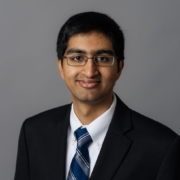
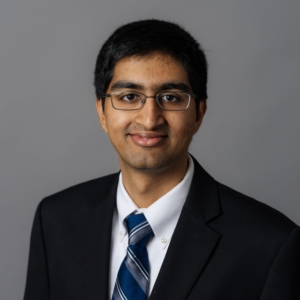
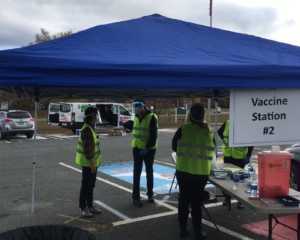


Leave a Reply
Want to join the discussion?Feel free to contribute!